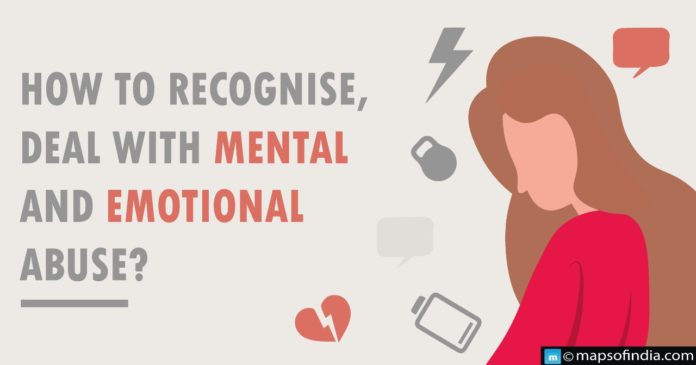Psychological abuse is the worst thing that involves a person’s attempts to make you feel down, frightened, scared, control, or isolate you. It is in the abuser’s words and actions and their tenacity in behaviours.
The abuser can be anyone, be it your spouse or romantic partner. They could be your business partner, parent, or even your caretaker.
No matter who it is, ask yourself, is it okay? Is it alright to get abused by someone? You don’t deserve any abuse, and if someone does, then it’s not your fault. If you are getting used by someone but are still unable to feel is it happening for real or not, know the below-listed indications to confirm:
•Humiliation, negating, criticising
These are some points that are meant to forget your self-esteem. The abuse is very harsh and unbearable.
Here are some examples:
- Name-calling: They constantly call you “stupid,” “a loser,” or curse words to make you feel down in public.
- Yelling: Yelling, screaming, and swearing are meant to make you silent and feel small and not good enough.
- Patronising: They try to make you regret being alive like, “Aw, honey, I know you’re trying your best, but this is just far beyond your understanding.”
- Public embarrassment: They pick fights over small topics and will try to expose your secrets or make fun of you in public.
- Insults about your appearance: They tell you, just before you go out or get ready, that your body is not perfect, your hair is ugly, or your outfit is disgusting.
- Pushing your buttons: Once your abuser knows about something that freaks you up, they would bring it up that thing or do it every time they get a chance.
• Control and shame
Trying to make you feel ashamed all the time by making you count your inadequacies is just another path to power.
Tools of the shame and control game include:
- Threats: The abuser may blackmail you by saying that they would leak your pictures if you don’t agree with them or take away your kids and disappear.
- Digital spying: They can ask or check your social media history, emails, texts, and call log. They might even demand your cellphone’s passcode.
- Treating you like a child: They direct you to wear clothes of their choice, what and how much to eat, or which friends you can see.
- Using others: Abusers will try to make you feel down by saying “everybody” or saying “you are horrible”.
- Accusing, blaming, and denial
This behaviour comes from the insecurities of an abuser. They want to show and create a scenario where they are at the top, and you are at the bottom.
Here are some examples:
- Jealousy: They constantly accuse you of cheating on them, even if you didn’t.
• Turning the tables: They blame you that you make them lose their temper and make issues by being such a jerk and pain in their lives.
- Denying something you know is true: An abuser constantly tries to deny arguments and even an agreement that already took place in front of you. They’ll try to make you forget the truth. It is called gaslighting, which is only meant to make you question your memory and sanity.
- Using guilt: They might say something like, “You’ll have to do whatever I say”, or Look at all of these things I’ve done for you,” in an attempt to get you on their way emotionally.
- Goading then blaming: Abusers know how to blame and make fun of you, and once the trouble starts, they start constantly blaming that it’s your fault for creating it.
What to do in such cases?
Trust your feelings and mind if you are mentally and emotionally abused. Remind yourself that it is not right and that you are not meant to live this way.
If you are in a dangerous situation and need to talk or find someplace to go, try to call the National Domestic Abuse Helpline.
- Exit the relationship or circumstance: Just cut out all the ties if you are mentally fed up. Make it clear that it’s over and never look back again in your life. You might need a therapist who can help to show you an easy and promising way to move forward.
- Give yourself time to heal: Try to talk with your supportive friends and family members. Talk to a teacher or guidance counsellor if you’re studying in school. If you think it will help, find a therapist who will help you recover.




